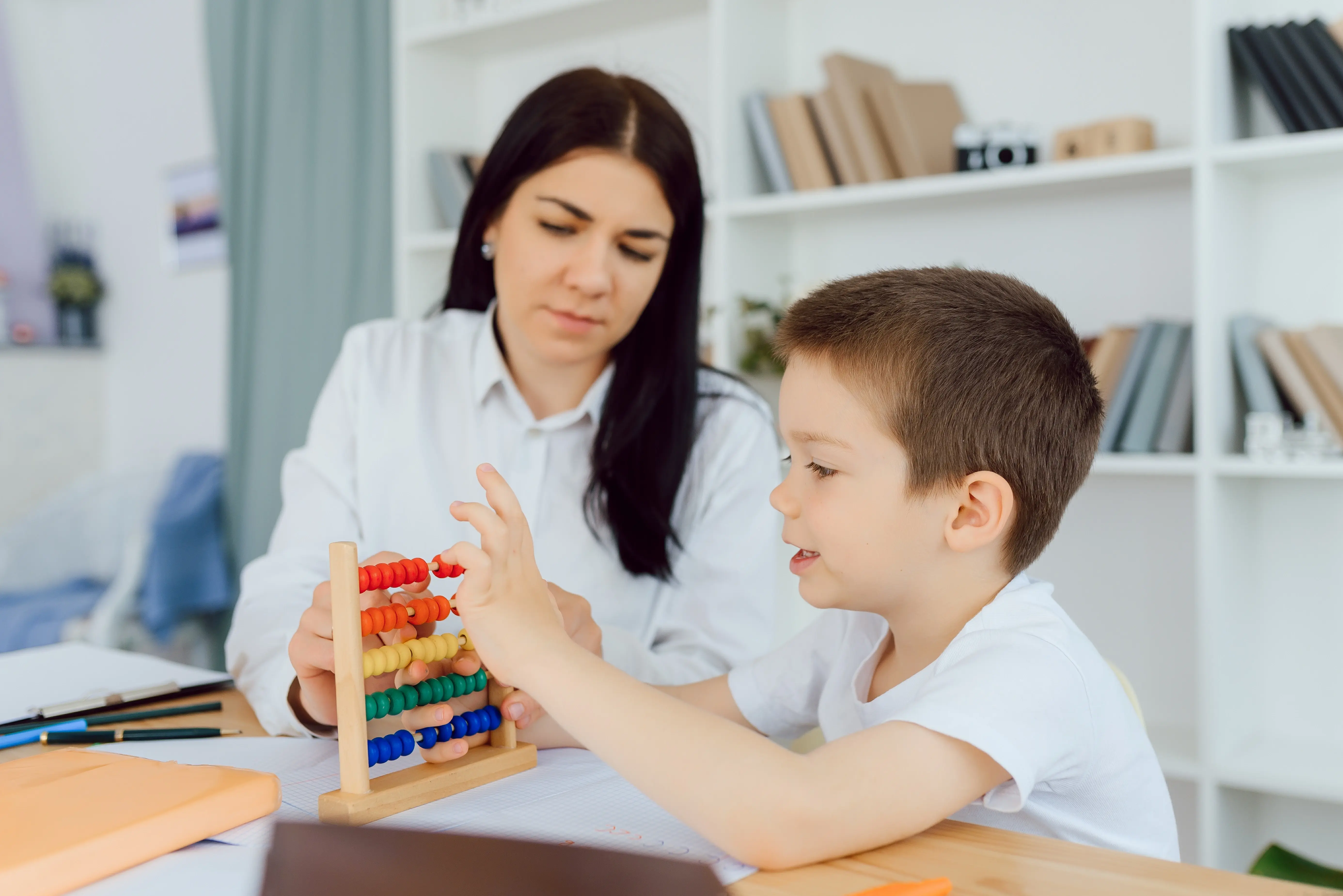When a child misses certain milestones in thinking, learning, behavior, or problem-solving, it may indicate a Cognitive Delay. While every child develops at their own pace, consistent lags in key areas can affect school performance, behavior, relationships, and overall development. Early support plays a major role in improving outcomes and helping children live better, more independent lives.
At Innovative Health and Wellness Group, we focus on identifying these signs early and providing support plans tailored to each child’s needs. In this blog, we will explain what Cognitive Delay means, highlight 10 key indicators, and share how our health providers can help.

What Is Cognitive Delay?
A cognitive delay means a child’s thinking and learning skills are developing more slowly than expected. It can affect thinking, understanding, communication, memory, and learning skills. A child with Cognitive Delay may struggle more than their peers when it comes to processing information, following instructions, or completing age-appropriate tasks. While it does not always mean permanent impairment, early signs should not be ignored.
10 Key Indicators of Cognitive Delay in Children
Here are the most common signs that could suggest a Cognitive Delay in a child. If your child shows one or more of these behaviors regularly, it may be time to seek guidance from experienced health providers.
1. Delayed Speech and Language Development
Children with a Cognitive Delay may begin speaking later than other children their age. This is one of the answers to “what causes speech delay.” They may use fewer words, have a hard time forming sentences, or struggle to understand what is being said to them.
2. Slow Learning Pace
If your child takes longer than expected to learn basic skills like counting, identifying colors, or learning the alphabet, it might point to a Cognitive Delay. This can become more obvious in preschool or early school years.
3. Difficulty Following Instructions
Children with a Cognitive Delay often find it hard to follow simple directions, especially if they involve more than one step. This is not about being disobedient—it is about how the brain processes information.
4. Limited Problem-Solving Skills
Kids with delayed cognitive development might struggle with puzzles, games, or tasks that require logical thinking or trial-and-error learning.
5. Short Attention Span
If your child finds it hard to focus, even for short periods, or quickly loses interest in activities that require thinking or learning, it may be a sign of Cognitive Delay.
6. Poor Memory Skills
Children with Cognitive Delay may have trouble remembering simple instructions, names, or things they have recently learned. This can affect their confidence, relationships at home, and classroom performance.
7. Social and Emotional Challenges
Children with Cognitive Delay may not respond well to social cues, struggle to make friends, or have difficulty managing emotions. These challenges can cause frustration and social isolation.
8. Delayed Motor Skills
Fine and gross motor delays (like holding a pencil or running) may sometimes go hand-in-hand with a Cognitive Delay, especially when the brain’s ability to coordinate tasks is affected.
9. Lack of Curiosity or Interest in Exploring
Children naturally want to explore the world. A child with Cognitive Delay may show less interest in toys, books, or new environments.
10. Regression in Skills
If a child loses skills they once had—like speaking, using the toilet, or recognizing familiar people—it could be a sign of a deeper developmental concern, including Cognitive Delay.

How Innovative Health and Wellness Group Can Help
At Innovative Health and Wellness Group, our goal is to help children reach their full potential. We understand the challenges parents face when they suspect a Cognitive Delay, and we offer compassionate, structured support at every stage.
Here is how we help:
Comprehensive Developmental Assessments
Our health providers conduct detailed assessments to evaluate learning abilities, communication skills, and social behaviors. This helps us understand where the child stands developmentally.
Individualized Care Plans
Every child is different. We build custom support plans based on the child’s unique needs, including therapy options, activities, and progress goals.
Ongoing Monitoring
Our team tracks progress closely and adjusts strategies as needed. Regular check-ups make sure we do not miss any chances for your child to grow and develop.
Family Support and Education
We guide parents and caregivers with helpful strategies for home, school, and daily routines. This includes easy-to-follow activities and behavior management tools.
A Caring Team You Can Trust
Our experienced health providers work hand-in-hand with families, schools, and other care professionals to build a strong support system around the child.
Why Early Support Matters?
The sooner a Cognitive Delay is identified and managed, the better the outcomes for the child. With the right tools, consistent care, and a supportive environment, many children make significant progress. Waiting or ignoring signs can make things harder later on, especially in school or social situations.
If you have noticed any of these signs in your child, it is best not to wait. Early action can make a lasting difference.
FAQs About Cognitive Delay
- Is Cognitive Delay the same as intellectual disability? Not always. A Cognitive Delay means a child is developing more slowly than expected, but they may catch up. This is also known as global developmental disability. An intellectual disability is usually more severe and lasts a lifetime.
- Can Cognitive Delay be treated? While it is not about a “cure,” many children improve with the proper support. Therapy, routine, and learning tools can help build skills over time.
- What causes Cognitive Delay? There is no single cause. It can be due to genetics, birth complications, infections, or other health issues. Sometimes, no clear cause is found.
- Should I wait for my child to catch up on their own? No. If you notice signs, it is better to get an assessment early. Early support is often more effective than waiting.
- How do I start getting help for my child? Reach out to Innovative Health and Wellness Group. We will guide you through the next steps, from assessments to creating a personalized care plan tailored to your child’s needs.
Let’s Work Together for Your Child’s Growth
At Innovative Health and Wellness Group, we are here to support your child’s development every step of the way. Our team understands the importance of identifying signs of Cognitive Delay early and acting with care and clarity. We are committed to helping children move forward with confidence.
Ready to take the next step?
Contact us today to schedule a developmental consultation or speak with one of our trusted health providers. Let’s work together for your child’s future.

